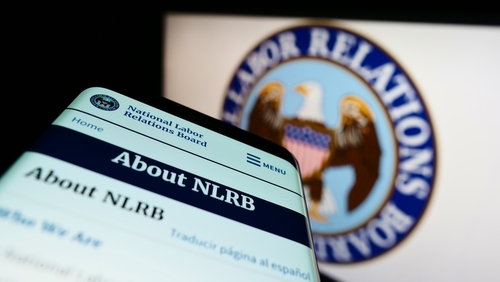Supreme Court to weigh whether law aimed at crisis pregnancy centers violates First Amendment
The challengers contend that the Reproductive FACT Act was targeted to cover the 200 or so crisis pregnancy centers in California and does not impose the requirement on facilities that provide abortions. Indeed, licensed medical facilities that participate in Medi-Cal, the state Medicaid program, and Family PACT, which offers comprehensive family planning to low-income people and covers abortion services, don’t have to provide the notice.
A federal district court denied a preliminary injunction to block the Reproductive FACT Act requirements, and a panel of the 9th U.S. Circuit Court of Appeals at San Francisco affirmed.
The 9th Circuit panel held that the notice required of licensed providers could be regulated under its professional speech doctrine, which applies intermediate constitutional scrutiny to a regulation of speech between professionals and their clients in a professional relationship. (While several federal circuit courts have recognized such a doctrine, the Supreme Court has not.)
California has a substantial interest in ensuring that women are aware of state-sponsored “medical services relevant to pregnancy,” the court said. The notice for licensed centers is narrowly drawn to achieve that interest because it requires facilities merely to inform clients “of the existence of publicly funded family planning services” and does not “encourage, suggest or imply that women should use those state-funded services.”
The notice required of unlicensed facilities would meet any level of First Amendment scrutiny, the appeals court held. The provision “helps ensure that women … are fully informed that the clinic they are trusting with their well-being is not subject to the traditional regulations” applicable to medical professionals.
The lower courts also upheld the provisions against the centers’ free-exercise-clause claims based on their religious beliefs. The Supreme Court took up the challengers’ appeal but limited it to the First Amendment free speech claim.
A MESSAGE IN 13 LANGUAGES
The challengers say the requirements make it difficult for the pregnancy centers to advertise. The Reproductive FACT Act requires every ad to include the notice for either licensed or unlicensed centers, and it must be provided in multiple languages—as many as 13, depending how many “threshold languages” are recognized by the state as spoken in a particular county.
“That makes it impossible to do a billboard,” Theriot says. “Certainly, it prohibits a Google ad.”
Critics of the crisis pregnancy centers argue they have long used misleading advertising to lure pregnant women and provide inaccurate information once those women are inside the centers.
“They aren’t transparent about the services they actually provide,” says Adrienne Kimmell, vice president of communications and strategic research at NARAL Pro-Choice America, a Washington, D.C.-based abortion-rights advocacy group. “There is an intentional deception there.”
Priscilla Smith, a clinical lecturer at Yale Law School and senior fellow at the school’s Program for the Study of Reproductive Justice, also says many of the centers’ “modus operandi is to use either false advertising or, at the very least, very vague advertising to make people think that they are medical clinics offering abortion.”
Theriot of the Alliance Defending Freedom and O’Connor of NIFLA strongly dispute those assertions.
There’s no information in the record of this case that the pregnancy centers have used deceptive tactics, Theriot says. “That is something that is a longtime accusation that is just not based on fact,” he says.
O’Connor says, “Pregnancy centers help women. They provide a safe space and empower them.”
They point to a January ruling by the 4th Circuit at Richmond, Virginia. This ruling struck down an ordinance adopted in Baltimore that sought to require unlicensed pregnancy centers to provide a notice to clients that they do not provide or make referrals for abortion or birth control services.
The 4th Circuit said in that case that despite seven years of litigation and a 1,295-page record, “the city does not identify a single example of a woman who entered the Greater Baltimore Center’s waiting room under the misimpression that she could obtain an abortion there.”
Like most of the high-profile cases of the current Supreme Court term, President Donald J. Trump’s administration has gotten involved. Despite the administration’s strong anti-abortion stance, it sides with the pregnancy centers only for half a loaf.
“Licensed clinics have a strong interest in refraining from speech that advertises third-party services they find morally repugnant,” wrote U.S. Solicitor General Noel J. Francisco in the federal government’s brief. “California has not substantiated any particularized interest in having licensed clinics themselves disseminate the notice.”
The state may not require the pregnancy centers to serve as billboards for the state’s comprehensive reproductive health services, Francisco said.
By contrast, the notice required of unlicensed centers to disclose that they do not provide medical services should be upheld, the administration said.
“It merely requires service providers to disclose an accurate, uncontroversial fact about their own services: That they are not provided by a state-licensed medical professional,” Francisco wrote. “The state has a strong interest in ensuring that women know whether services such as ultrasounds and sonograms are provided by licensed medical professionals.”
This article was published in the March 2018 ABA Journal with the title "Truth in Advertising: Court to weigh whether law aimed at crisis pregnancy centers violates First Amendment."



